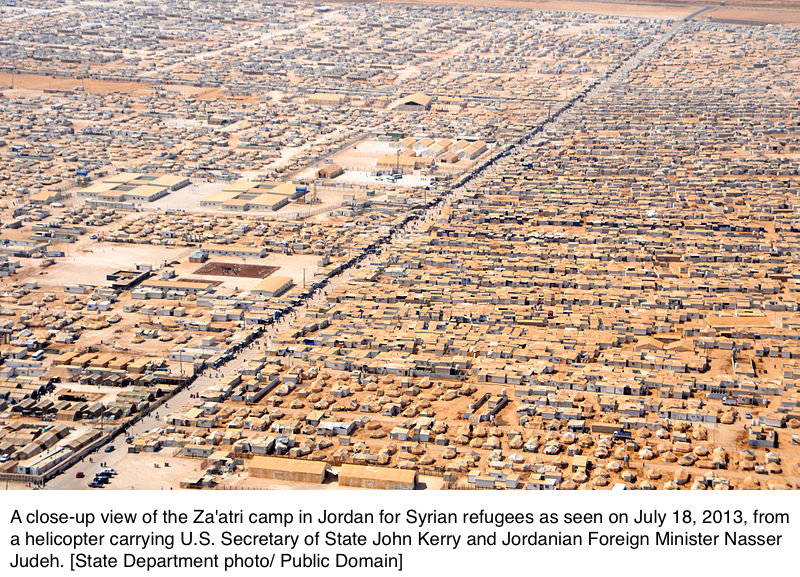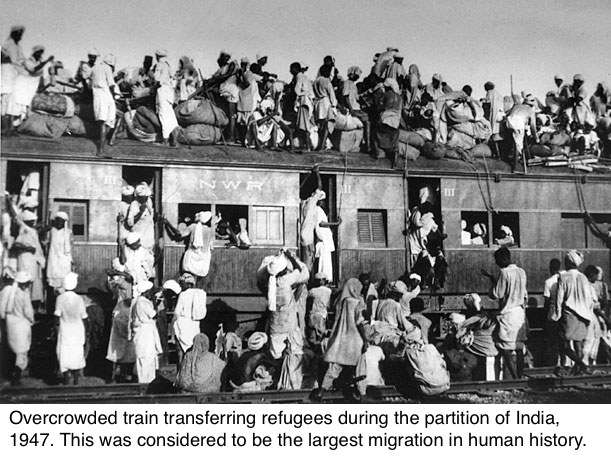Settling Refugees in Southeast Connecticut...
Published by Ronald Steed,
Last week, I attended a presentation at the Rotary Club of New London on Refugees by Chris George, the Executive Director of Integrated Refugee and Immigration Services (IRIS), based in New Haven, CT. I learned a lot.
First, the term "refugee" is a technical term… it has a specific meaning:
"Owing to well-founded fear of being persecuted for reasons of race, religion, nationality, membership of a particular social group or political opinion, is outside the country of his nationality and is unable or, owing to such fear, is unwilling to avail himself of the protection of that country; or who, not having a nationality and being outside the country of his former habitual residence as a result of such events, is unable or, owing to such fear, is unwilling to return to it."1
Thus, refugees are not "migrants" at all. There are persecutions and fears of persecutions involved and an inability or unwillingness to return to their former country. This is a problem because for many American citizens, the issues around refugees gets easily conflated around those of undocumented aliens, and the realities of these two issues are actually very far apart. In fact, to use the term "migrant" in lieu of "refugee" is to use a euphemism that masks the very serious plight of people whose lives are in danger.
Chris explained that the United States has a long history of support for refugees (with some notable exceptions) , and is among about 15 other nations around the world who screen and admit refugees to their countries for permanent settlement as an act of justice. The United States typically admits around 70,000 refugees which, until the Syrian crises, was more than the combined effort of the rest of the world. With the very large Syrian refugee crises however, other nations are far ahead of the U.S. Syrians are now the largest (but not the only) refugee populations, and now number about 4,000,000 people encamped in Lebanon, Turkey, and Jordan. About 500,000 (mostly men) are on the move into Europe, while the vast majority remain in the Middle East. Of this population, the U.S. has only admitted about 1800… a very small number compared with the scope of the problem. Note that although there are 4,000,000 Syrian refugees, there are more than 19,500,000 refugees globally (more than 5 times the population of Connecticut). Most are women and children.

The life of a refugee is hard. They live in refugee camps and wait years to return home (if they can at all). The chances of resettlement are small. In the case of the U.S., our government interviews potential candidates for resettlement in the United States, validates their claims, checks them medically and for security (not a trivial task, especially in the case of Syrian refugees), and then finally some are invited to settle. That process itself can take years to complete.
In the U.S., there are 9 national organizations and 350 local not-for-profits who take on the task of settling refugees in this country. In CT, there are three of these non-for-profits, include IRIS. The funding for transitioning a refugee into the United States is low. It costs about $16,000 per person. As a result, the process is fast, and pretty unforgiving. Given about two weeks notice that a family is coming to CT, IRIS must find an apartment for them, furnish it with donated furniture, prepare the apartment with volunteers and stock the kitchen. They find someone in the community to prepare a hot "culturally appropriate" meal for the family with they arrive. As you might imagine, the family is anxious and tired with they are met at the airport and the meal goes a long way in helping to welcome them.
The next day, case mangers are working on healthcare, school, language education, and of course… getting jobs for the parents. It is a tough, demanding process and it has to be done quickly (learning English for example… children tend to learn much faster than their parents, and advanced degrees are not much help until parents can become functionally literate). There are no funds for sustainment if the family is slow. Many women are working for the first time in their lives. After about five years, the family is eligible to become naturalized citizens.

Here in Southeast Connecticut, it turns out that we have a very great interest in helping to settle refugees, and quite a lot of experience as well. The Jewish Federation of Eastern Connecticut settled many refugees from Russia in the 1990s.
What can we do? Chris noted that first, the federal government needs to raise the number of refugees admitted to this country. IRIS is calling for the U.S. to raise its quota from 70,000 to 200,000. This was the level the U.S. was able to settle from Southeast Asia in the 1980s, so we have had recent and practical experience with that level of effort. Given that number, chances are good that we might be able to settle some in Southeast Connecticut.
Job #1: write your congressman and senators to raise the refugee quota.
Job#2: read more about refugees here: https://en.wikipedia.org/wiki/Refugee
Job# 3: Learn more about IRIS here: http://www.irisct.org/
1. Convention and Protocol relating to the Status of Refugees (PDF), Geneva, Switzerland: Office of the United Nations High Commissioner for Refugees (UNHCR), Communications and Public Information Service, 1967